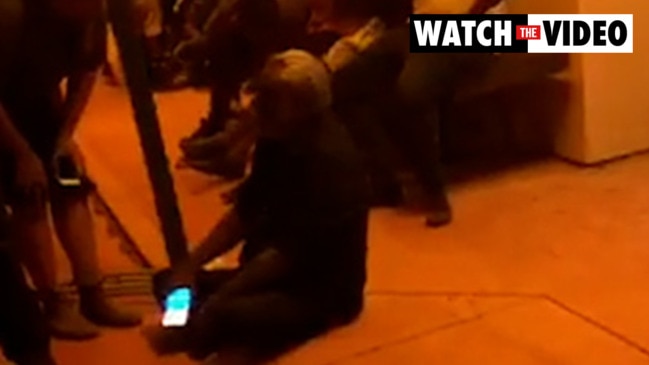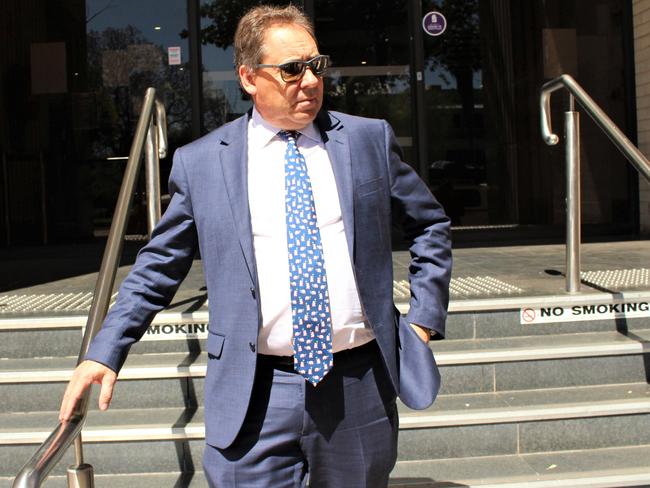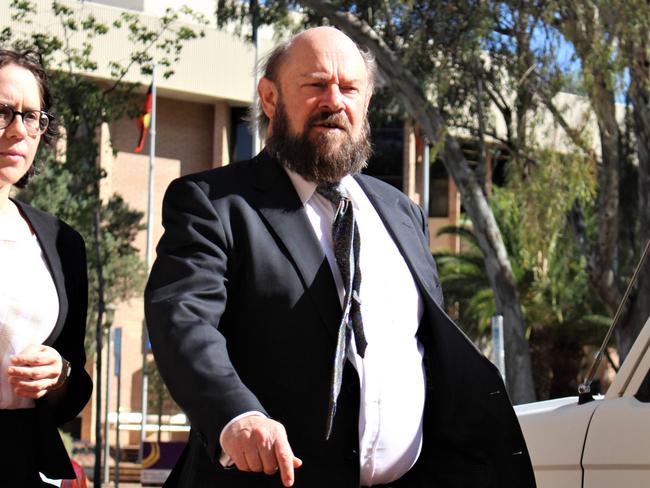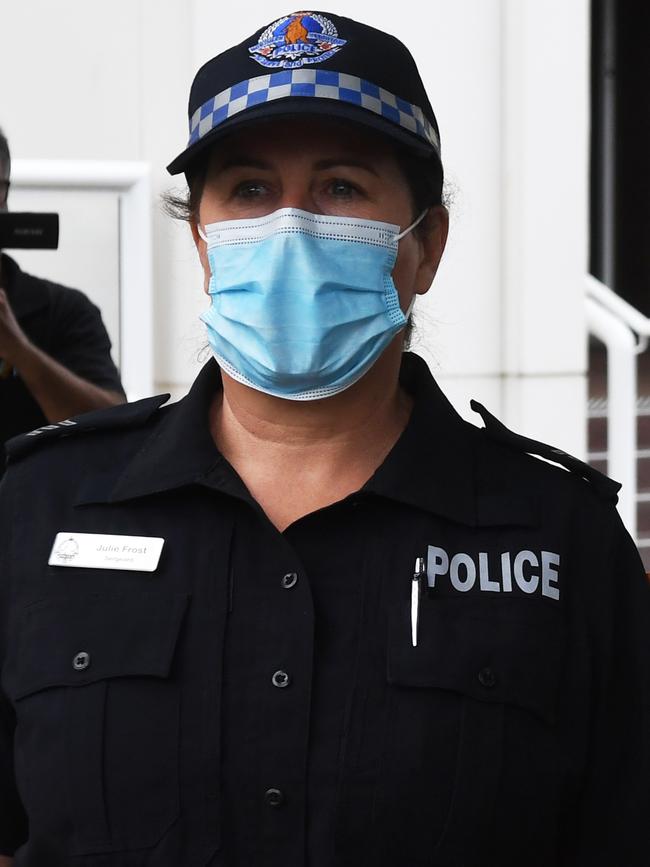OIC Julie Frost ‘devastated’ at being run out of Yuendumu after being blamed for Kumanjayi Walker shooting
The officer in charge of the Yuendumu police station concluded her evidence in the Alice Springs Local Court on Friday. Read what the court heard.

The officer in charge of the Yuendumu police station on the night Kumanjayi Walker was killed was “devastated” at being forced to leave town after the community blamed her for the shooting, a court has heard.
Sergeant Julie Frost completed her evidence in the Alice Springs Local Court on Friday during an ongoing inquest into the 19-year-old Warlpiri man’s death.
Constable Zach Rolfe was acquitted on all charges in March after fatally shooting Mr Walker during a botched arrest in 2019.
Sergeant Frost told Coroner Elisabeth Armitage she had always planned to arrest Mr Walker at 5.30am the next day when “we knew where he would be sleeping”, in house 577.
Constable Rolfe’s barrister, David Edwardson KC, asked Sergeant Frost why she agreed to send his Immediate Response Team out “intelligence gathering” on the night he died if she had planned to arrest him the next morning.
Sergeant Frost responded that the term could “mean lots of different things”.
“But it doesn’t mean actively searching for him,” she said.
“If I wanted any element of surprise in an arrest, the last thing you would want to do is to attend 577.”

Under questioning from NT Police barrister, Ian Freckelton KC, Sergeant Frost said it had been IRT member, James Kirstenfeldt, who had suggested the intelligence gathering exercise “and I said ‘Yep, good’”.
But Sergeant Frost said she did not expect the team “to go straight to 577 to gather intelligence about whether Kumanjayi Walker was inside, there and then”.
“Then you’ve tipped your hand,” she said.
“(I expected) that they would be driving around the community, familiarising themselves with the community, doing a discrete drive past (houses) 577 and 511, particularly while it was still daylight hours.
“Playing basketball with the kids and having general conversations, perhaps doing an RBT.”
Sergeant Frost agreed that she had told Constable Kirstenfeldt that if the IRT came across Mr Walker then “by all means, lock him up”, but said she thought that was “extremely unlikely”.
“He was generally actively avoiding police,” she said.
“If he saw a police car he would hide and run and he didn’t wander around a lot, if he did it was sort of at night time.”
Sergeant Frost said a community meeting was called the day after the shooting but she was only able to attend for a matter of minutes before she had no choice but to leave town.
“It became apparent that the community blamed me for the shooting,” she said.
“I was devastated, (I’m) still devastated.”

At the conclusion of her evidence, Sergeant Frost expressed her sorrow to the community for their loss, and apologised for tricking them into believing Mr Walker was still alive despite knowing he had already passed away.
“I’m extremely sorry to the community that we had to do that,” she said.
“It has never been a comfortable decision for me, but at the time we had to do that for safety reasons.”
Earlier, the court heard police had sent an empty ambulance from the station where Mr Walker died to the Yuendumu airstrip as a “pretence” to trick the community into thinking he was still alive.
North Australian Aboriginal Justice Agency barrister Julian Murphy asked Sergeant Frost about a passage from an interview she gave to police, in which she described officers driving to the airstrip “in convoy under the pretence of going out there to pick up medical staff”.
Sergeant Frost told him the reasons for doing so were “two-fold”, including to collect members of the Territory Response Group who were responding to the shooting’s aftermath.
“One was so we had enough vehicles to house all of the members coming off the plane, I knew they’d have a lot of equipment, so we needed enough vehicles to put the members in and put all of their luggage and their swags and that sort of thing in,” she said.
“There was (also) some level of hope that … the ambulance going out there might make the community feel comfortable knowing that perhaps a doctor was coming on board as well or coming out there.”

Sergeant Frost denied that the plan was to fool the community into thinking Mr Walker “might be in that ambulance”, rather than that a doctor was coming to treat him, but conceded it would be “the most logical” conclusion.
Either way, she agreed the 19-year-old was already dead.
Coroner Elisabeth Armitage interjected to say, “you wouldn’t need an ambulance to collect a doctor”, and Sergeant Frost reiterated that “it was more a case of we needed the space”.
“We needed vehicles out there because I knew that the members would have swags and equipment and luggage,” she said.
“And I knew there was seven of them so I needed enough vehicle space to be able to house everyone that came off that plane.”
“Do you agree that nowhere in any of your evidence – that is, two recorded interviews, committal evidence, evidence at trial – nowhere did you ever talk about needing the ambulance to store things until your evidence in chief on Wednesday?” Mr Murphy asked.
“No, I haven’t ever mentioned that,” Sergeant Frost replied.
The inquest continues on Monday.





